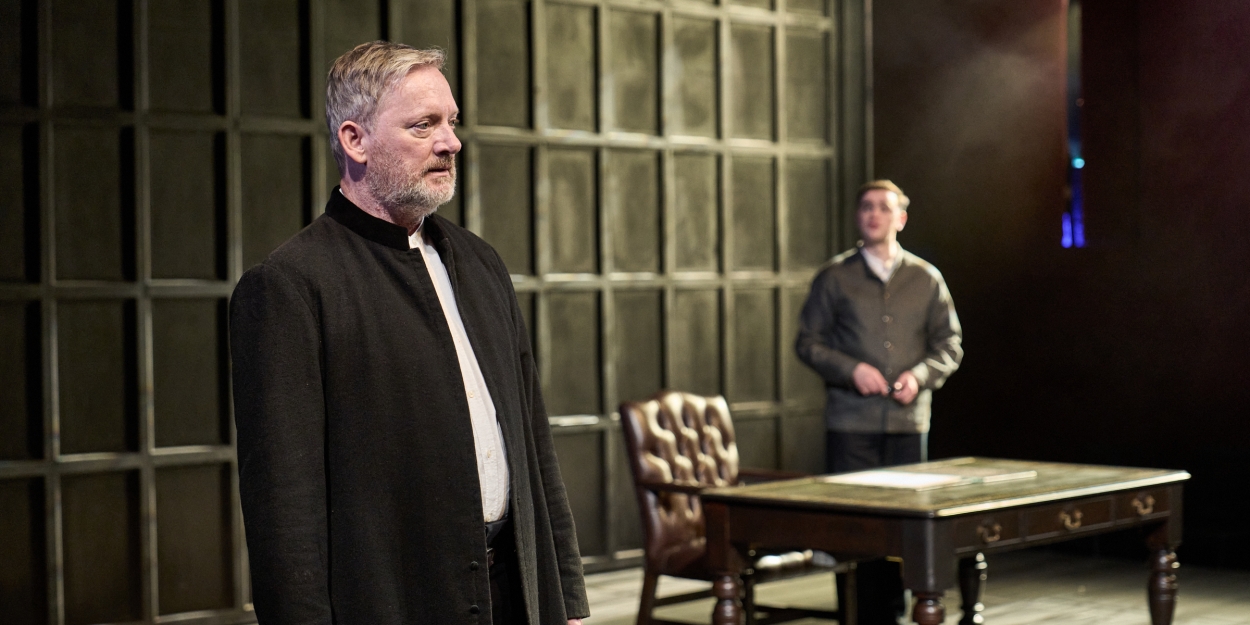Review: MARY, Hampstead Theatre
Rona Munro's latest companion to The James Plays is slow, lacking of any dramatic tension or hook, and far from the “political thriller” label Hampstead given it.

![]() Scotland, 1567: a country divided, ravaged by religious division and unrest. We catch up with the politics of the age when the plots to overthrow Mary Stuart's reign are boiling freely. With the Queen incarcerated, the opposition are one signature away from putting the regent on the throne: James Melville's. Loyal servant to the queen, tormented by regret, and traumatised by the events that unfolded under his guard, he is stalling Thompson and Agnes' demand to join them.
Scotland, 1567: a country divided, ravaged by religious division and unrest. We catch up with the politics of the age when the plots to overthrow Mary Stuart's reign are boiling freely. With the Queen incarcerated, the opposition are one signature away from putting the regent on the throne: James Melville's. Loyal servant to the queen, tormented by regret, and traumatised by the events that unfolded under his guard, he is stalling Thompson and Agnes' demand to join them.
With Mary, the latest companion piece to The James Plays cycle, Rona Munro explores the ramifications of the - then alleged, now confirmed - rape of Mary, Queen of Scots under the warped lens of the political games for which it was a useful tool. She introduces the malicious hearsay and political enterprise of a complicated era, delivering it with jarring misogyny and juxtaposing blind allegiance to popular opinion, perception to truth. Conceptually, it's a provocative, fascinating play. It's a shame the execution of these ideas falls short.
Directed by the Artistic Director of the theatre, Roxana Silbert, Mary is slow, outrageously lacking in any dramatic tension or hook, and far from the "political thriller" label they've given to it. Beloved BBC detective Douglas Henshall plays Melville, joined by Rona Morison and an exquisitely eloquent Brian Vernel as two fictional Protestant leaders. They are so still and unengaging it could have been a radio play. I'm glad it wasn't, as we would have missed out on Matt Haskins' lights as they shower Ashley Martin-Davis' set design beautifully.
Henshall is a brash, coarse, direct diplomat. He is ruled by honour and loyalty but, ultimately, swayed by the promise of a new Scotland. His change of heart is surprising after having professed his devotion to Mary and essentially confessed his romantic feelings towards her, but not as shocking as Agnes' opposite switch. Morison's character is continuously berated and put down by her male counterparts in a frustrating display of misogyny probably accurate to the period but inexcusable in its emphasis.
The playtext starts with "This is April 1567 but it could be any time", which Silbert translates with ambiguous costumes (Henshall looks like he's been transported from the Shetland set straight after shooting) against Tudor panelling. Ringing in at an unbroken hour and a half, the piece might need some more development when it comes to the character's turnarounds. It doesn't hold the gravitas demanded by the historical material nor it grips the audience in the same way a Wolf Hall would do.
Munro analyses the rape at the hand of Lord Bothwell from the outside, withdrawing Mary's voice completely and spinning her story from the perspective of a handful of outsiders whose interest in her is purely as a pawn in their games. Female voices are held at bay until the very end, when a gaggle of angry women rightfully storms the stage while Henshall stands still. It's intriguing in its meaning, but comes as a clash with the preceding tone and focus of the show. It's just a bit tiring to see another female narrative chained to the moral journey of a man.
Mary runs at Hampstead Theatre until 26 November.
Photo Credit: Manuel Harlan
Reader Reviews

Videos

